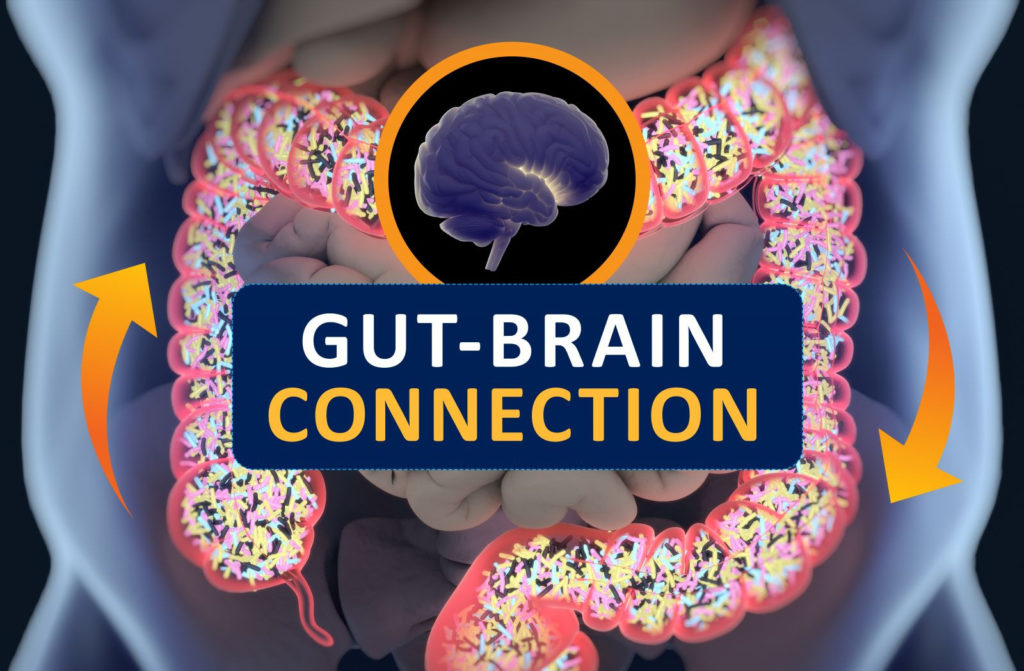
Everyone wants to be healthy physically, mentally, and emotionally.
Back then, we only often give importance to physical health. No wonder there are a lot of people who religiously follow their workout routines and diet plans. Most of the time, such routines and plans are proven to be effective in ensuring better health.
However, we should also take care of our mental health. Nowadays, more and more people are more aware and break away from the stigma of mental health. Taking care of our mental health is as important as having regular exercise and eating the right foods.
However, several studies have shown that there is a strong link between our gut health and mental health. How so?
The impact of gut health on our mental health (and vice versa)

Perhaps you’re familiar with the phrases such as “felt butterflies in your stomach” when you feel anxious or nervous. Or perhaps you were left with no choice but to “trust your gut” when you are about to make a decision.
Apparently, this is because of your so-called “second brain”. This discovery is paving the way for medical experts to understand the connection between our gut health and mental health.
For starters, this so-called second brain was termed by scientists as the enteric nervous system (ENS). It is actually composed of hundreds of millions of nerve cells that line up your gastrointestinal (GI) tract.
The ENS does not do the job as what your brain inside your head does. Rather, it is responsible for managing the digestion process – from consumption up to elimination. While the ENS is not capable of processing thoughts, it does “interact” with our primary brain.
This means the state of our gut health can greatly affect your feelings and thoughts and vice versa. This might explain the abovementioned adage “butterflies in your stomach”. For example, a lot of people may have experienced feeling the urge to go to the toilet when they feel nervous.
However, researchers also say that irritation in the GI system triggers signals to the brain and cause mood swings. This phenomenon may also explain why there are many people who experience anxiety and depression due to digestive issues.
Basically, it’s like the brain on our heads and our “secondary brain” in our gut interact with each other. This can be a significant finding especially in the treatment of digestive and mental health issues. Researchers believe that treatments designed to cure digestive issues can also help with mental health problems and vice versa.
This is one reason why gastroenterologists may prescribe antidepressants for irritable bowel syndrome. Apparently, such medications can help provide relieve symptoms by taking action on the gut. Also, CBT may also help in enhancing “communication” between our brain and the “gut-brain”.
However, there are still further studies that need to be done about the link between our minds and our guts. Such studies can also lead to the discovery of how signals from our digestive tract can affect our metabolism. Likewise, this may also hold the key to how it can reduce the risk of type 2 diabetes and other health issues.
Signs to watch out for poor gut health
Given the connection between our mental health and gut health, it is important to ensure good digestive health. If you are experiencing the following signs, you should take action to improve your gut health (to be discussed later on).
Fatigue

It is most likely due to the overpopulation of Candida albicans. It is a type of bacteria that naturally exist in our gut. The overpopulation of Candida albicans can lead to a spike in insulin and glucose.
Bloating

It can be due to the imbalance of gut bacteria. It happens when you take medications as well as stress and poor diet. When there is a depletion of good bacteria, it can cause gassiness and bloatedness.
Irritable bowel syndrome

It is said that about 45 million individuals suffer from irritable bowels. IBS can also be triggered by stress and other mental health issues brought about by their everyday life.
Food intolerance

A lot of people suffer from some kind of food intolerance to seafood, gluten, or dairy. Food intolerance can be very uncomfortable and affect your mood as well.
Happy gut, happy mind
Here are some tips to keep your gut and mind healthy and happy.
- Take a break on eating sugary foods. Too much sugar on your system can lead to fatigue and insulin spikes. Eat healthier and whole foods and more fruits and veggies.
- Try to include fermented foods like sauerkraut, as well as probiotics into your diet. This will lessen the occurrence of bloating and irritable bowel.
- If you think you have food intolerances, you should undergo allergy testing. This will help determine what kinds of foods you are allergic to.
- Lessen the stress by unwinding from time to time. Take a deep breath, take some vacation leaves, read a book or something. Any kind of activity that will help you calm down.
Did you know that fitness can influence and improve mental health? Click HERE!
Comments
0 comments


This is a great article, but you can’t lose weight until you try
this: http://bit.ly/3sYjWoU
Thank you very much for sharing, I learned a lot from your article. Very cool. Thanks. nimabi
mexico pharmacies prescription drugs: cmq pharma mexican pharmacy – mexican rx online
Online medicine home delivery india online pharmacy best online pharmacy india
http://indiapharmast.com/# Online medicine order
canadianpharmacyworld com cheap canadian pharmacy online canada pharmacy online legit
my canadian pharmacy canadian valley pharmacy legit canadian pharmacy online
https://canadapharmast.online/# canada ed drugs
mexican pharmaceuticals online reputable mexican pharmacies online buying prescription drugs in mexico
https://canadapharmast.online/# canadian pharmacy ltd
ciprofloxacin 500mg buy online: ciprofloxacin mail online – buy cipro cheap
amoxicillin tablet 500mg: canadian pharmacy amoxicillin – amoxicillin price canada
buy ciprofloxacin: п»їcipro generic – cipro online no prescription in the usa
amoxicillin generic: generic for amoxicillin – amoxicillin 250 mg price in india
purchase cipro: antibiotics cipro – buy cipro online canada
can i order generic clomid no prescription: cheap clomid without prescription – where can i get cheap clomid pill
Paxlovid buy online: paxlovid pharmacy – paxlovid for sale